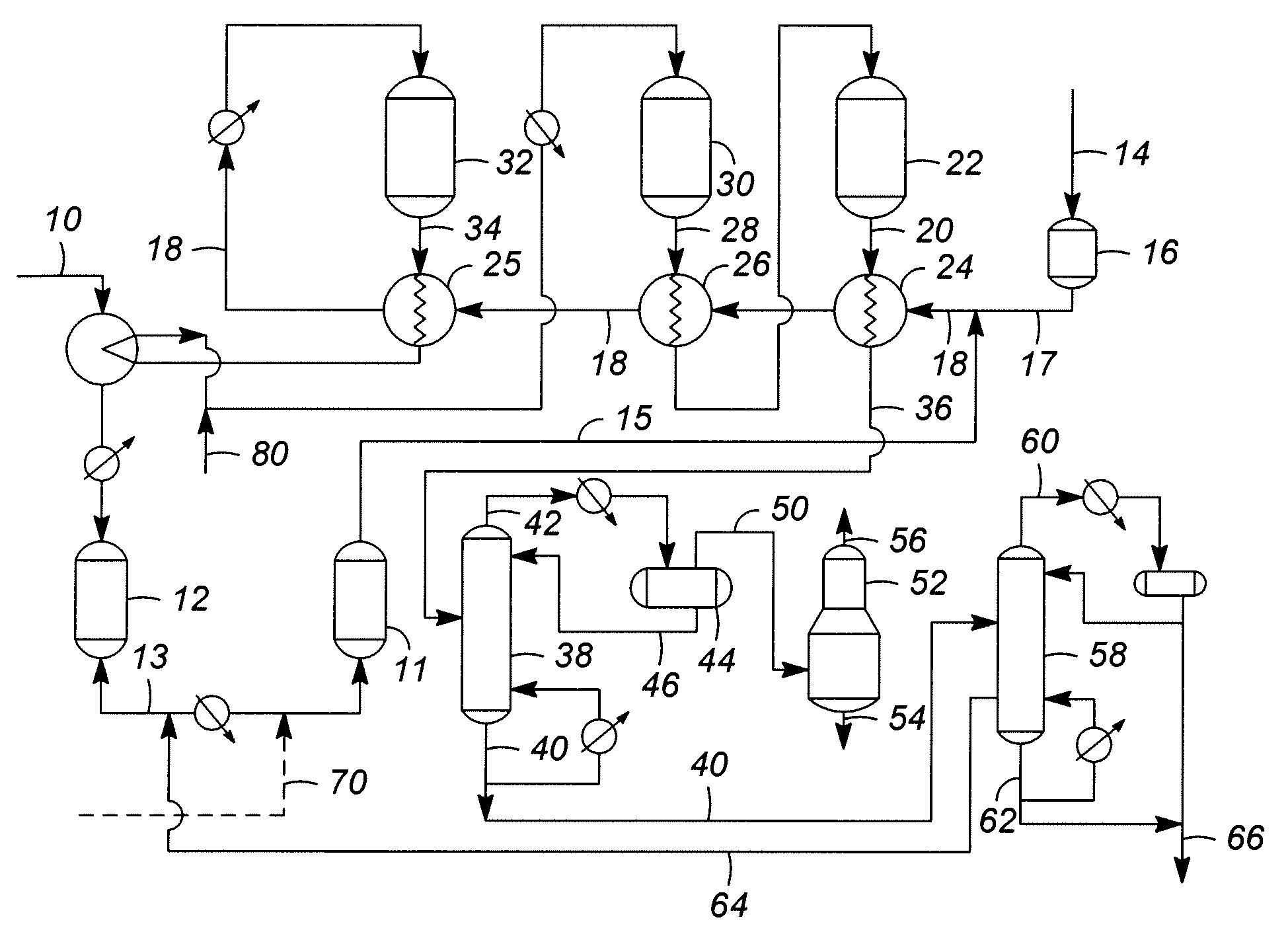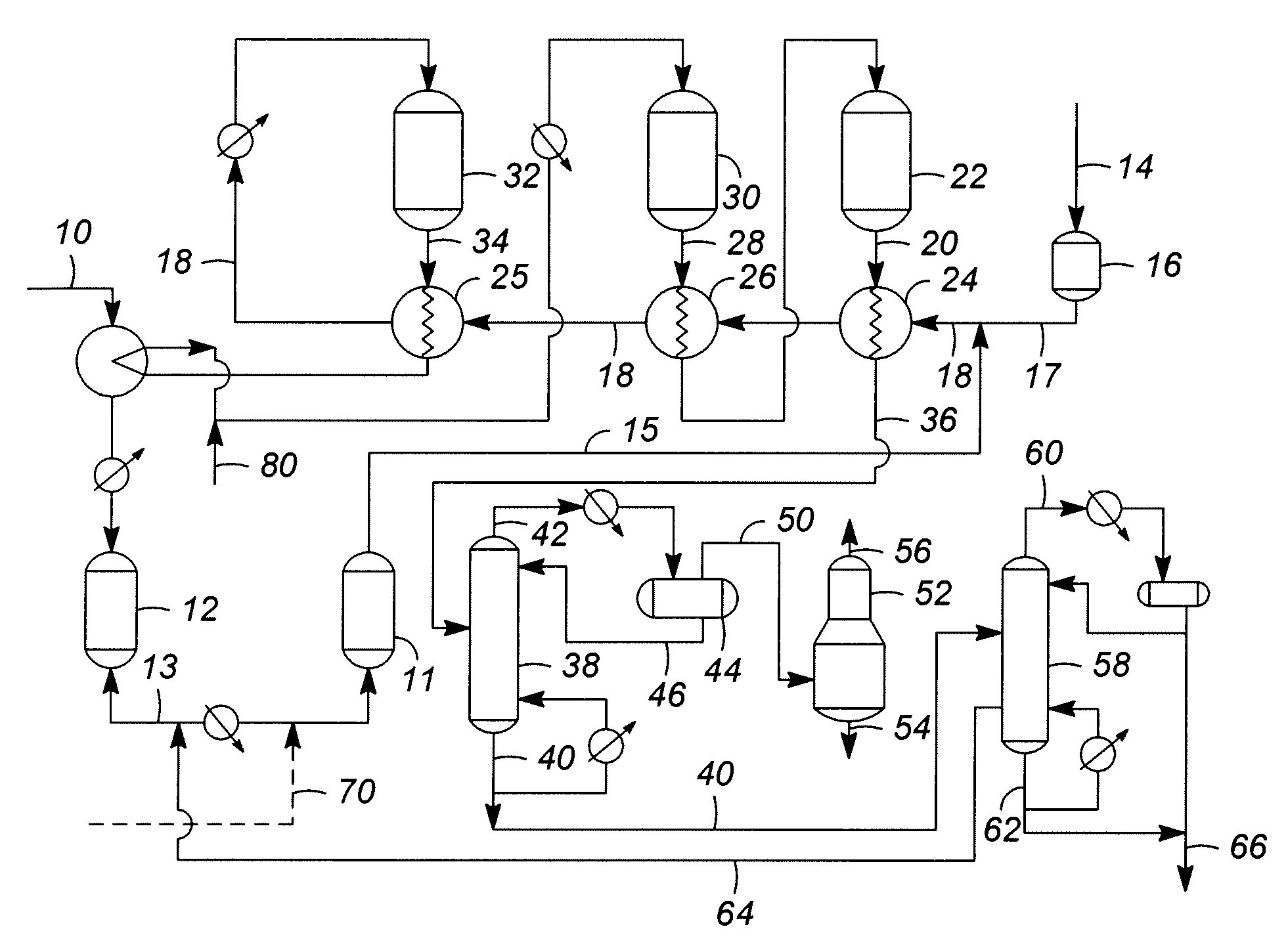Isomerization of Benzene-Containing Feedstocks
a technology of benzene-containing feedstocks and isomerization zones, which is applied in the direction of hydrocarbon preparation catalysts, naphtha treatment, organic chemistry, etc., can solve the problems of shortening the life of the product, reducing the yield of the product, and generating undesirable side reactions, so as to reduce the overall temperature of the isomerization zone feed, reduce the coking effect, and minimize undesirable hydrocracking reactions
- Summary
- Abstract
- Description
- Claims
- Application Information
AI Technical Summary
Benefits of technology
Problems solved by technology
Method used
Image
Examples
Embodiment Construction
[0014]A basic arrangement for the processing equipment used in this invention can be readily understood by a review of the flow scheme presented in the FIGURE. The FIGURE does not show all pumps, condensers, reboilers, instruments and other well-known items of processing equipment in order to simplify the drawing. However, the discussion points out several items of traditional processing equipment that may be eliminated and thus provide both a capital cost savings and an operational cost savings.
[0015]Looking at the FIGURE, a feedstream comprising at least C5 and C6 paraffins along with at least 1 wt.-% benzene enter the process through line 10 and pass through a sulfur guard bed 12 that removes sulfur from the feedstream. The sulfur-depleted feedstream in line 13 is passed through a low pressure drier 11 to remove water. It is important to note that line 13 is not passed through a reactor, nor is hydrogen added, before being dried in low pressure drier 11. This eliminates the need ...
PUM
 Login to View More
Login to View More Abstract
Description
Claims
Application Information
 Login to View More
Login to View More - R&D
- Intellectual Property
- Life Sciences
- Materials
- Tech Scout
- Unparalleled Data Quality
- Higher Quality Content
- 60% Fewer Hallucinations
Browse by: Latest US Patents, China's latest patents, Technical Efficacy Thesaurus, Application Domain, Technology Topic, Popular Technical Reports.
© 2025 PatSnap. All rights reserved.Legal|Privacy policy|Modern Slavery Act Transparency Statement|Sitemap|About US| Contact US: help@patsnap.com


